Reflections on State of Indo-Caribbean Diaspora 100 years After Indentureship : Achievements, Challenges and Prospects
Saturday 2nd Dec 1:00pm (Checkin)
Program from 1:30-5:45pm
At Columbia University, New York
Foundation for Indian and Indian Diaspora Studies (FIIDS)
with
Hindu Yuva, Columbia University Chapter
http://fiids-usa.org/ny-indentured-indian-diaspora
Address: Venue: Davis Auditorium CEPSR, Columbia University, NY
530 W 120th St, New York, NY 10027, USA
Directions: http://apam.columbia.edu/directions-davis-auditorium-cepsr
On occasion of 100th anniversary of abolition of Indenturedship, the Foundation for India and Indian Diaspora Studies (FIIDS) would like to host a conference on History, Present and Future of Indentured Indian Diaspora. Various experts would present their comments on the diaspora’s struggle, survival of culture and success in building an influential community from historical as well as socio-political-anthropological perspective.
Program:
Session 1 : 1:30pm-2:25pm : Historical Perspectives: Migration, Resistance, Settlement, Adaptation and the Future
- Misconceptions of Indenture – Dr. Lomarsh Roopnarine, Professor, Jackson State University.
- Resilience of Our Ancestors and the Potential of Our Diaspora – Ms. Karen Dipnarine Swaroop, Mass Communications Professional and Co-founder The Green Brain Initiative.
Session 2 : 2:30pm-3:25pm : Contribution of Indians to host country, India and the World .
- Emergence of Scientists and Scientific Thoughts – Dr. Somdat Mahabir, Epidemiologist/Scientist, National Institutes of Health (NIH); Adjunct Professor, NYIT.
- Appraising India-Indo Caribbean Relations – Dr. Vishnu Bisram
Break: 3:25pm-3:45pm
Session 3 : 3:45pm-4:45pm: Contemporary Socio, Cultural, Political and Economic Issues/Challenges Facing Diaspora Indians
- Politics in Bi-communal Societies: the Politics of Entitlement – Ravi Dev, Founder of ROAR, Former Member of Parliament, Guyana.
- Reparatory Justice – Dr. Tara Singh, Indo Caribbean Expert & Community Leader
Session 4 : 4:45pm-5:45pm : Where and how do Indian Diasporas onward journey proceed from here? and its Relations With Land of Origin – India
- The current potential of the Indian Diaspora for influencing a new World geo-political and cultural order – Dr. Sat Balkaransingh
- Relations of Diaspora with India – Hon. CGI Sandeep Chakravoorty
Date: Saturday 2nd December 2017
Time: 1:30pm-6:00pm (Pizza Lunch at 1:00 to 1:30 and Snacks at 3:30pm)
Place: Davis Auditorium, Columbia University, 530 W 120th St, New York, NY 10027 http://apam.columbia.edu/directions-davis-auditorium-cepsr
Public Transportation: Take the #1 train to 116th Street (Columbia University) station.
Parking: You may park on the street or parking garages (5-10mins) GMC Garage
532 West 122nd Street or Claremont Parking Corp. Riverside Church, 120th Street
FREE Program Registration RSVP Click Here
![]() Support FIIDS with Donation
Support FIIDS with Donation
Speaker:
Hon. Sandeep Chakravorty, Consul General of India, NY, is a member of the Indian Foreign Service (IFS) since 1996. He has served in India’s Missions in Madrid, Bogota, Dhaka and Lima.
Hon. Mr. Ravi Dev, Founder of Rise Organise and Rebuild Guyana (ROAR), an Indo-Guyanese political party, and ex-Member of Parliament of Guayana.
Dr. Vishnu Bisram, Pollster and Political analyst.
Dr. Somdat Mahabir, Epidemiologist & Scientist, National Institutes of Health (NIH).
Dr. Satnarine Balkaransingh, Author of book “The Shaping of The Culture: Rituals and Festivals in Trinidad” and PhD from he University of Trinidad and Tobago
Prof. Dr. Lomarsh Roopnarine, Jackson State University, MS, Latin American and Caribbean History and Guyana Times Newspaper Columnist.
Dr. Tara Singh, Indo Caribbean Expert and Community Leader
Ms. Karen Dipnarine, Mass Communications Professional and Cofounder The Green Brain Initiative
History: The Indian indenture system was an ongoing system of indenture, a form of debt bondage, by which 3.5 million Indians were transported to various colonies of European powers to provide labour for the (mainly sugar) plantations in Fiji, Mauritius, South Africa, Reunion Island, Francophone countries, Malaysia, Trinidad, Suriname, Guyana, Jamaica, Guadeloupe, Martinique and other countries of the Caribbean. It started from the end of slavery in 1833 and continued until 1920. The indenturedship was officially abolished on March 20, 1917. Many of the descendants of the labours subsequently migrated to US among many of them are in the New York and San Francisco bay area region. This event will give a way to reflect on this history, status and issues of the “indentured” Indian diaspora.
Then survival struggle and retention of culture is an inspiring history of Indentured Indian where despite disconnected from the motherland India and resistance from local authorities, the Indian diaspora retained the language, culture and developed a political influence so much so that they have headed governments in many countries including Fiji, Trinidad and Tobago, Mauritius, Suriname, and Guyana.
Conference Team:
Kiran Muthal, Sarthak Kalani, Ameya Deshmukh, Sunil Kale, Jagdeesh Sewhani, Divan Dave, Rudra Upadhaya
FIIDS National Team:
Khanderao Kand, Dr. Jashubhai Patel, Prof. Radhyeshyam Dwivedi
Contact: khanderao@fiids-usa.org

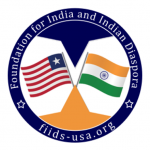
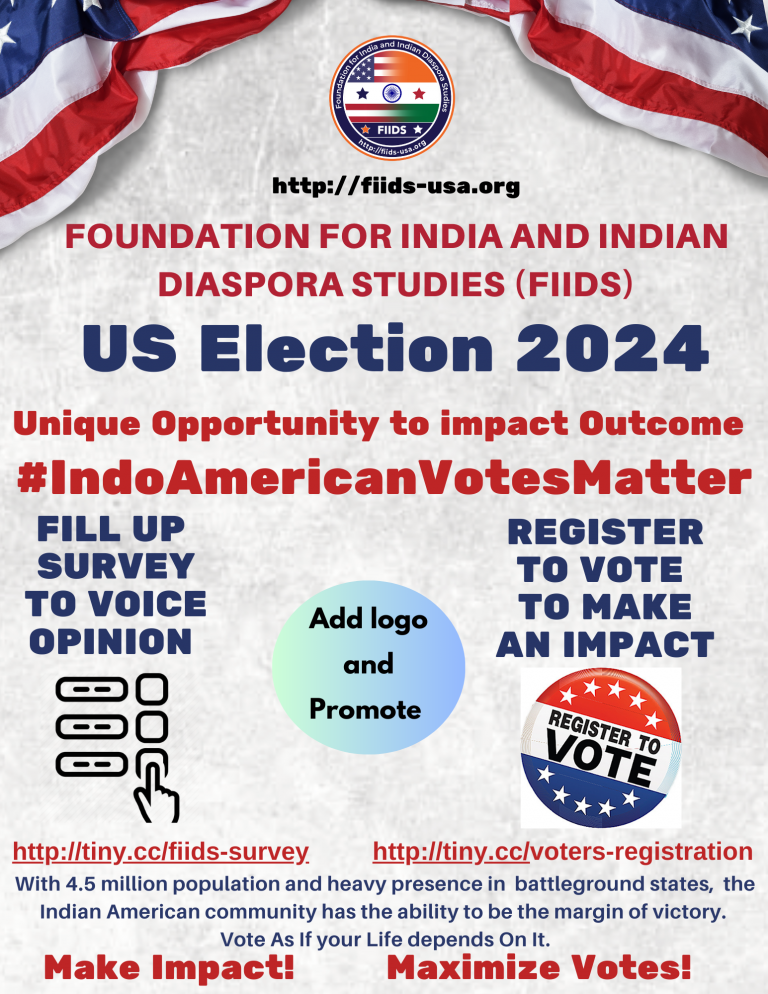
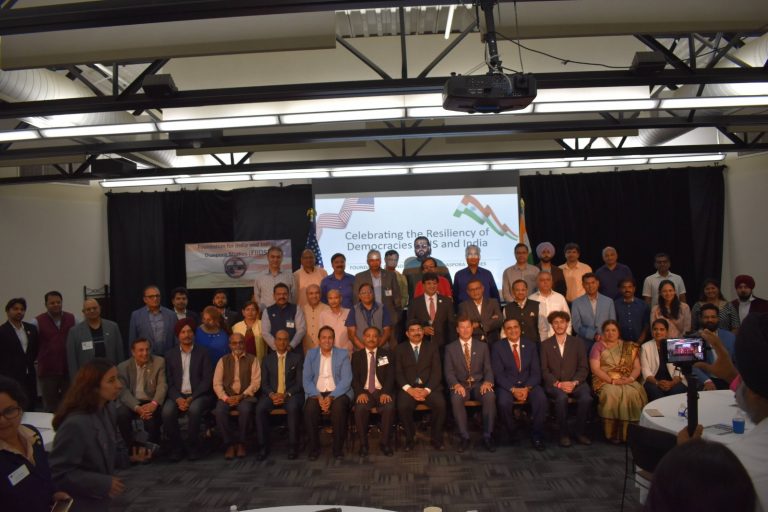
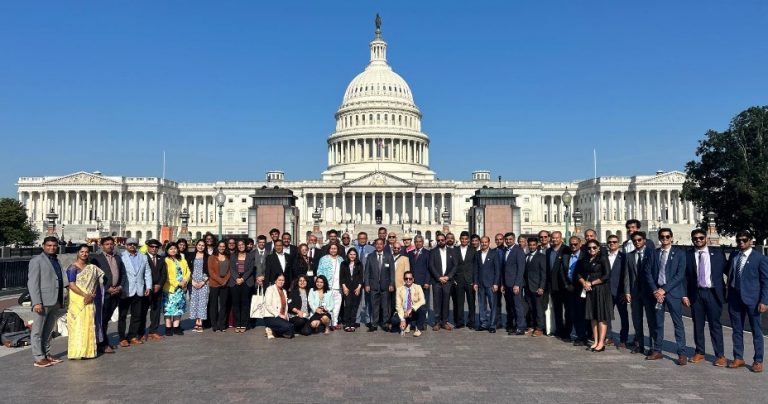
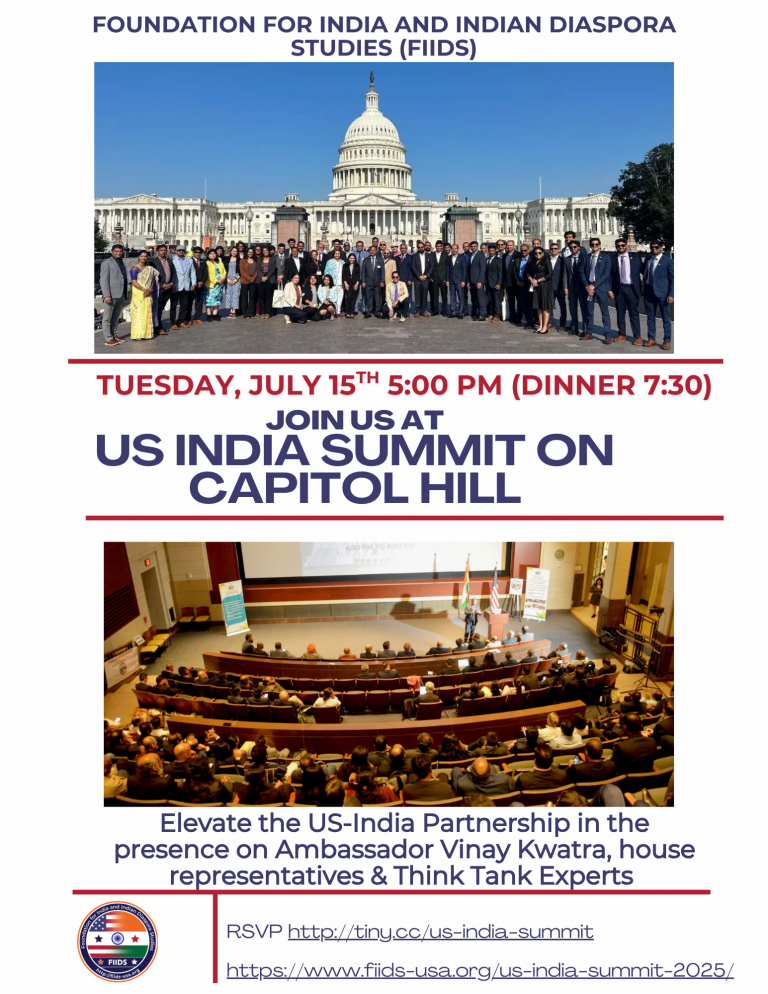
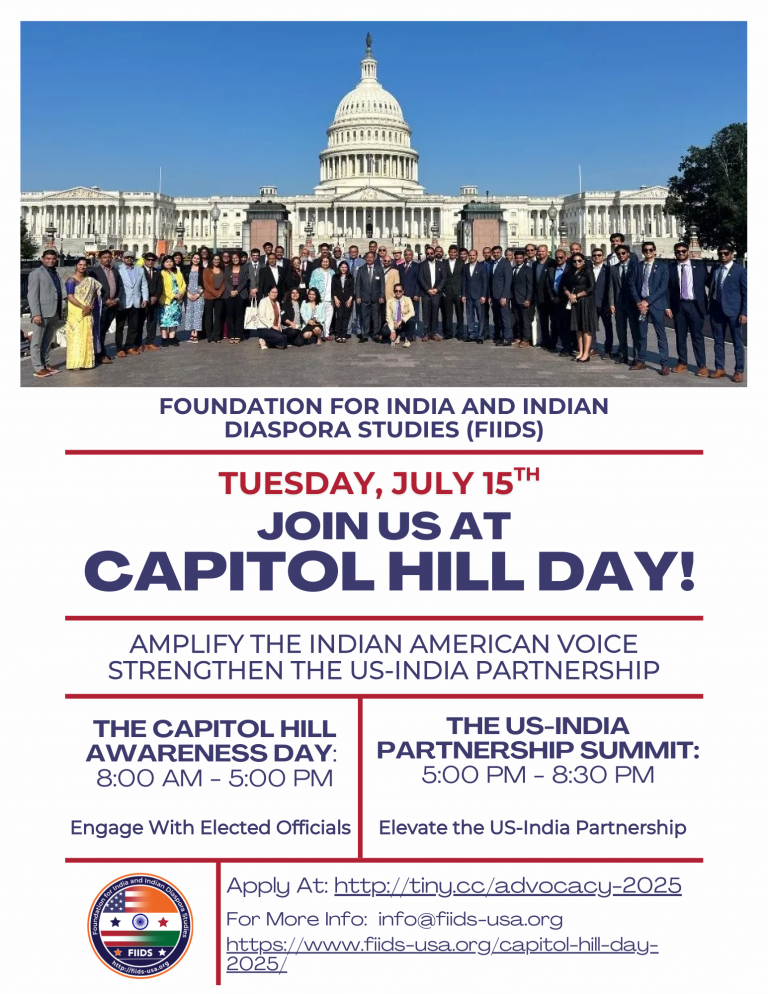

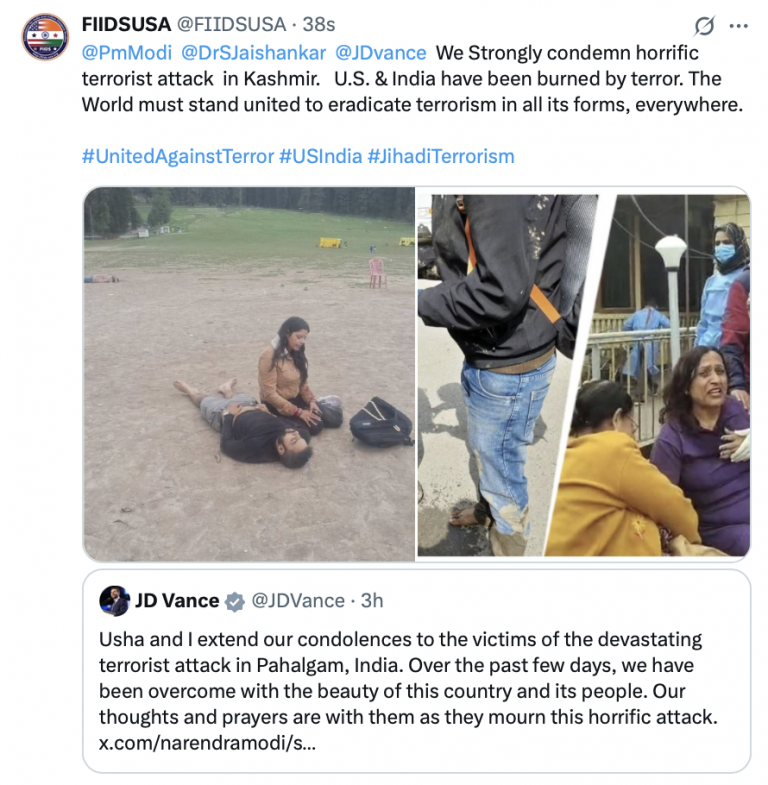
There is nothing to be gained by EastIndians in the Diaspora associating with India.They have done nothing in the time of need,example when the Black Dictatorship in Guyana was bent on exterminating the Indians.It was only our own resilience and determination that kept us going.
we cannot look at a model for government as every politicial in India is extremely corrupt.The Judiciary and police are all corrupt.
we should not allow Indians from india setting up business in our countries,they are parasitic on the host communities hence why they were thrown out of Uganda etc.
We cannot look at the Army or airforce,still existing in the same rigid colonial army as left by the British.
Same of old,a backward country that have not regained their selves ever since the Mogul invasion. A thorough corrupt wasteland similar to Ethiopia.
My memory of India was on leaving the airport in Delhi was the smell of human faeces that permeated everywhere.
Ther is nothing to be gained by association with India.we have some who look at Indian with the old romance stories,those are the ones who have not moved forward since the days in indentureship.The ones from the rural uncivilised parts of Guyana and Trinidad.They still live in a semi feudal system that their forefathers brought from India.
We should align ourselves with those countries of Latin America.At least there are true freedom fighters, very much ulike those crooked men from India,Ernesto ‘Che’ Guevara,Simón Bolívar, José Martí,Francisco de Miranda,Fidel castro etc -real men,true freedom fighters.
The days of Ghandi is over, we have to fight our own fight.The Indian is a mouse that cannot be relied on for support.
Let us ,the East Indians in the Diaspora forget about India,their idea of help is a facade for pushing their country’s parasitic business interests,example many countries in Africa especially Ethiopia.
I would recommend that East Indians from the Diaspora not take this conference seriously.
Romesh C.D.Singh
What does India have to offer,very little if anything.
I will be attending this event.